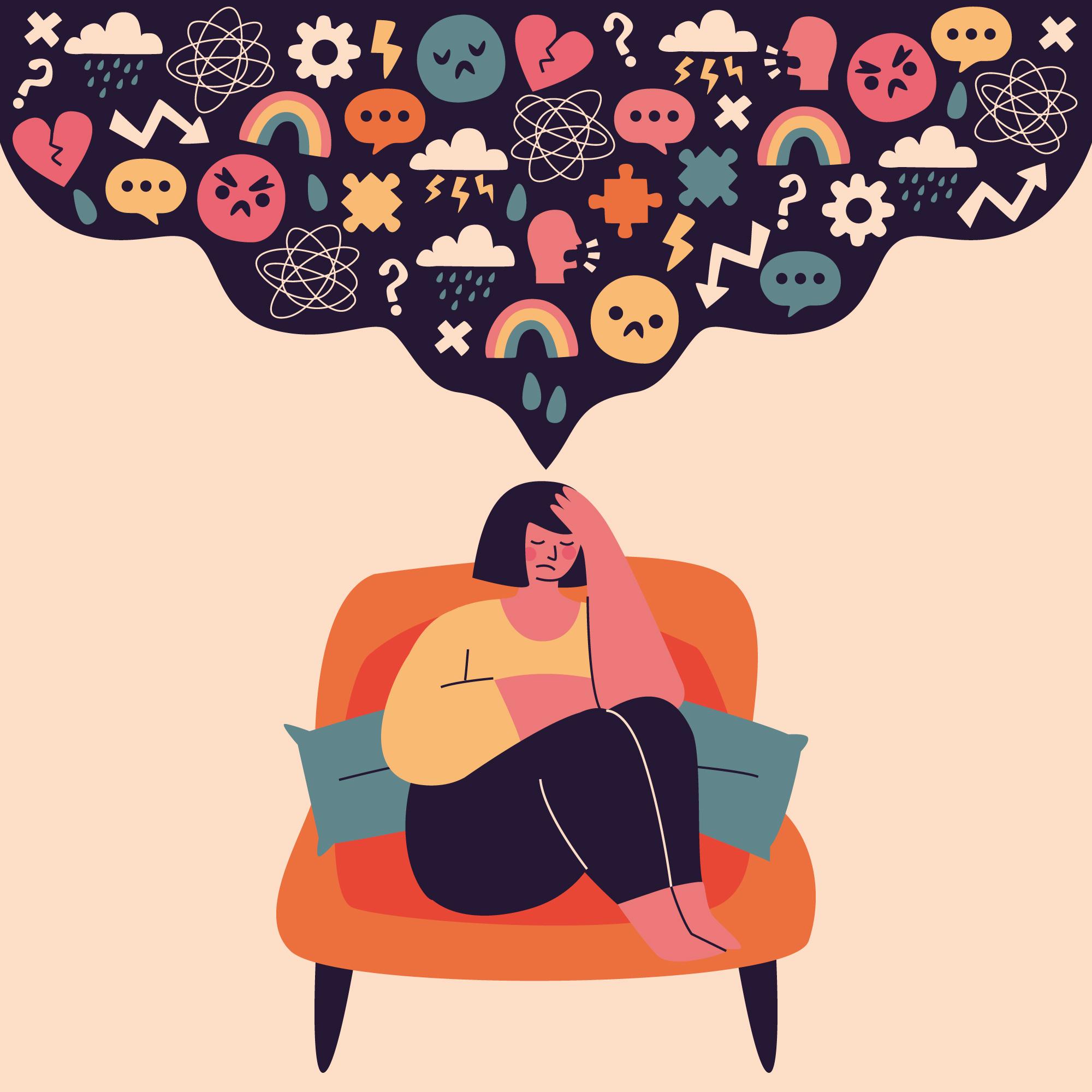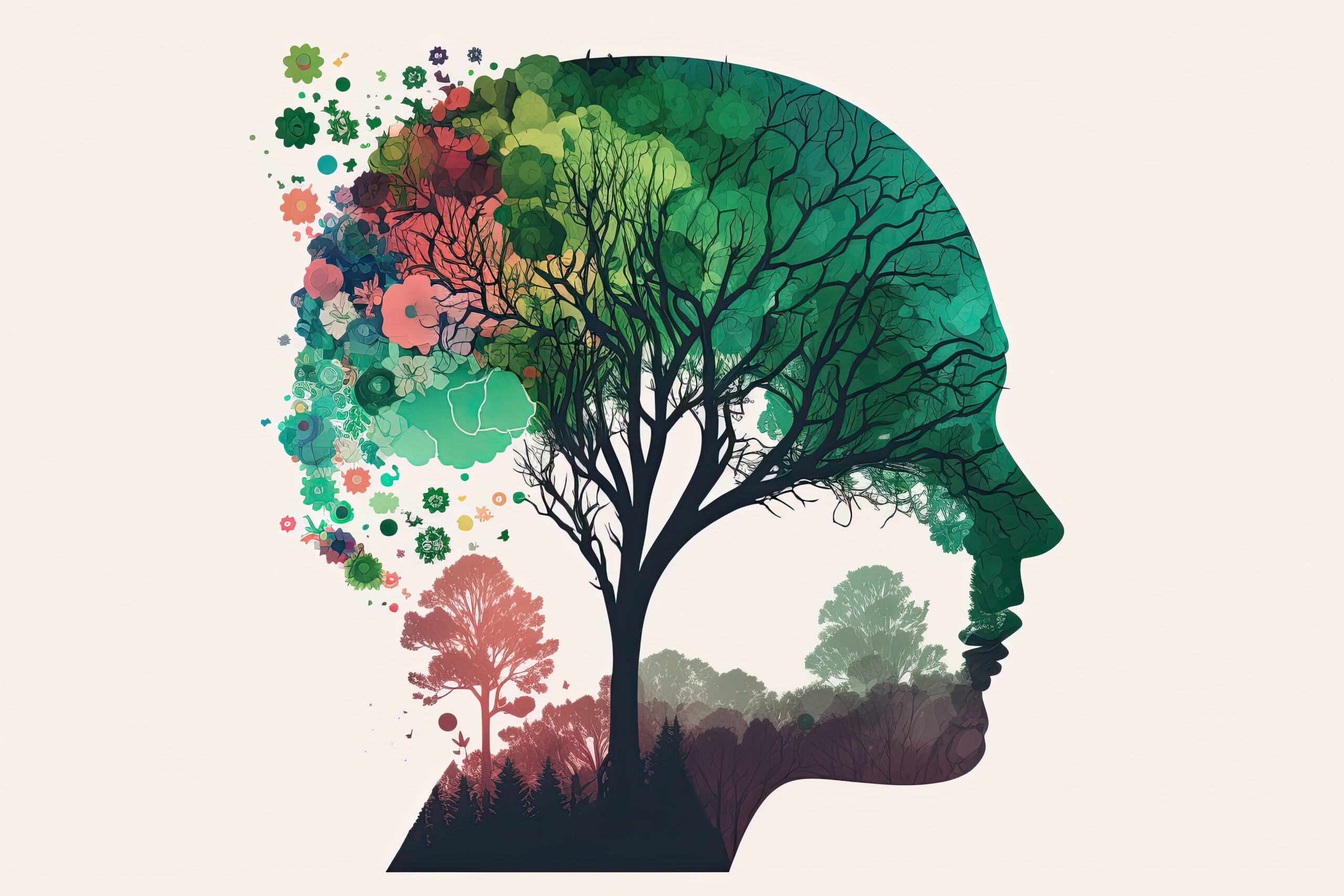Mental health is essential for general well-being since it influences emotions, behavior, and productivity. Daily duties may become challenging if one has poor mental health. Talking to dependable people, practicing self-care, unwinding, and, if necessary, getting professional help are all components of supporting mental health. Physical well-being, interpersonal connections, productivity at work, and general enjoyment are all impacted. In this blog we will find out 7 possible ways to deal with mental health issues:
 Signs and Symptoms Of Mental Health Problems:
Signs and Symptoms Of Mental Health Problems:
Several factors, that include genetics, personality, environment, and life experiences, have a direct impact on mental health. Experiences both good and bad, such as stress, trauma, and loss, can have an affect on it. There are many common signs of poor mental health.
7 Ways to Deal with Mental Health
Practice Regular Self-Care
 Self-care is the deliberate practice of taking activities to preserve or improve one’s own health and well-being. Physical, mental, and emotional health can all be affected. Everyone, regardless of age, gender, or health state, should practice self-care. It can be done in many different ways. Examples of this type include:
Self-care is the deliberate practice of taking activities to preserve or improve one’s own health and well-being. Physical, mental, and emotional health can all be affected. Everyone, regardless of age, gender, or health state, should practice self-care. It can be done in many different ways. Examples of this type include:
- Exercise regularly to release endorphins that improve mood. Additionally, it could reduce stress and anxiety.
- Stress and tension can be reduced through yoga and meditation. They might also aid in raising the caliber of your sleep.
- Eating well can improve your physical and mental well-being. Additionally, it could help you feel less anxious.
- Sleep is essential for both your physical and emotional well-being. We can handle stress and control our emotions better when we are well-rested.
Self-care practices enhance one’s physical, psychological, and emotional well-being while lowering stress, anxiety, and mood swings. Routines help with mental health therapy by fostering happiness, reducing stress, and boosting vitality. Plan your time, do something you enjoy, and ask for advice.
Cultivate a Strong Support System
 Anyone struggling with mental health concerns is going to benefit greatly from having an effective support system. It can offer monetary, materialistic, and emotional support. Our support network might include friends and family, but it’s also critical to seek professional help when it’s required. We can learn coping mechanisms and a better understanding of our mental health issues from therapists. They can also lead us and help us. Here are some pointers for building a powerful support network:
Anyone struggling with mental health concerns is going to benefit greatly from having an effective support system. It can offer monetary, materialistic, and emotional support. Our support network might include friends and family, but it’s also critical to seek professional help when it’s required. We can learn coping mechanisms and a better understanding of our mental health issues from therapists. They can also lead us and help us. Here are some pointers for building a powerful support network:
- Tell your friends and family what you’re going through in an honest and open manner.
- Ask for their help or let them help you
- Don’t feel reluctant to discuss as this is not a disorder.
- If you need aid, seek out professional help.
Prioritize Healthy Lifestyle Habits
Healthy living habits are practices that improve both mental as well as physical health. They consist of maintaining a healthy diet, engaging in regular exercise, receiving adequate rest, and abstaining from dangerous substances.
A balanced diet that includes plenty of fruits, vegetables, whole grains, lean protein, and healthy fats can enhance mood, lessen anxiety, and increase energy. Aiming for 7-8 hours per night of sleep is necessary for both physical and mental health. Reducing substance misuse may breed anxiety, sadness, and addiction, needing medical attention. Here are some points that you should focus while prioritizing healthy lifestyle
- Beware of dangerous drugs. Alcohol, narcotics, and cigarettes are all included here.
- Do some yoga, meditation, or other wholesome stress-management techniques.
- Get in touch with others. Build enduring social ties by spending time with those you love.
Practice Mindfulness and Meditation
 Being mindful means paying attention to the present moment without passing judgment on it. It is a technique for paying attention to what is occurring both inside of us and without us while being distracted by thoughts, feelings, or physical sensations.
Being mindful means paying attention to the present moment without passing judgment on it. It is a technique for paying attention to what is occurring both inside of us and without us while being distracted by thoughts, feelings, or physical sensations.
Multiple benefits of mindfulness for both physical and mental health have been shown, such as:
- Being more attentive of our thoughts and feelings might help us concentrate on the here and now.
- Insomnia can be lessened and the quality of sleep can be improved through meditation.
- Greater self-understanding may result through increased awareness of our ideas, feelings, and sensations.
- Compassion for both ourselves and others can be developed with the use of meditation.
- We can become more relaxed and tranquil by practicing meditation, which can also improve how we deal with stress.
Meditation involves sitting comfortably, taking deep breaths, and focusing on breathing to observe thoughts and emotions. It lowers stress, enhances physical and mental well-being, and improves mood, sleep, compassion, and self-awareness. Practice patience and be gentle.
Set Realistic Goals
We gain a sense of purpose and success when we set attainable targets, and this is healthy for our mental health. We gain confidence in ourselves and our abilities when we achieve a goal. This allows us to cope more effectively with stress and anxiety while additionally improving our motivation and sense of self-worth.
Setting goals has numerous benefits, including enhancing motivation, self-esteem, problem-solving abilities, productivity, and time management. People may develop a sense of purpose and keep their focus even in difficult circumstances by demonstrating clear, systematic processes to accomplish goals. This creates an effective cycle that encourages individuals to set up and fulfill more goals. Creating goals provides assistance in prioritizing and organizing time to achieve them.
Engage in Physical Activity
 Physical fitness is mandatory to beat the mental health problems as exercising daily or indulging in physical activities prove to reduce stress, anxiety and depression. It could be a major source of creating a strong link between physical and mental well-being. Physical activity can take many various forms, all of which are good for mental health. Several well-liked choices consist of:
Physical fitness is mandatory to beat the mental health problems as exercising daily or indulging in physical activities prove to reduce stress, anxiety and depression. It could be a major source of creating a strong link between physical and mental well-being. Physical activity can take many various forms, all of which are good for mental health. Several well-liked choices consist of:
- Yoga
- Walking
- Dancing
- Running
- Swimming
All of these physical activities turn out to be a great option for physical fitness as well as it gives pleasurable relief to an individual’s mind as well because due to exercise, our body releases a hormone called endorphins, which is actually a mood-boosting effect. It can help us to reduce pain, improve mood, and increase feelings of well-being.
Slowly increase the physical intensity as you start. Find anything you like to do, make it a daily priority, find a friend who inspires you to get active, and don’t be afraid to try novel forms of exercise. Your drive and responsibility will be sustained as an outcome.
Challenge Negative Thoughts
Cognitive distortions are wrong or damaging ways of thinking that can cause bad feelings and behavior. Catastrophizing, filtering, personalizing, mind-reading, and fortune-telling are a few examples of typical cognitive distortions.
By identifying negative thoughts, questioning their accuracy, collecting proof, and recasting them in a more positive way, you can overcome them. For instance, we can challenge the facts, consider our triumphs, and reframe the thought as “everyone makes mistakes” instead of thinking “I’m always failing.”
Conclusion

Mental health is a very serious issue which requires a lot of attention, it can be harmful leading towards taking life of the person facing these issues hence it is much better to navigate them on time and get link with a psychologist or a therapist on time which may be helpful for the individual and the community both , Some of the simple and easy ways are mentioned above to make you aware about the problems related to a mental well being and how you can solve them.





